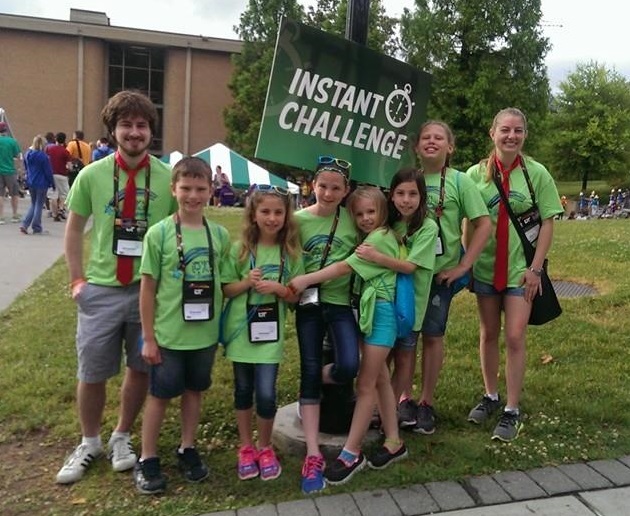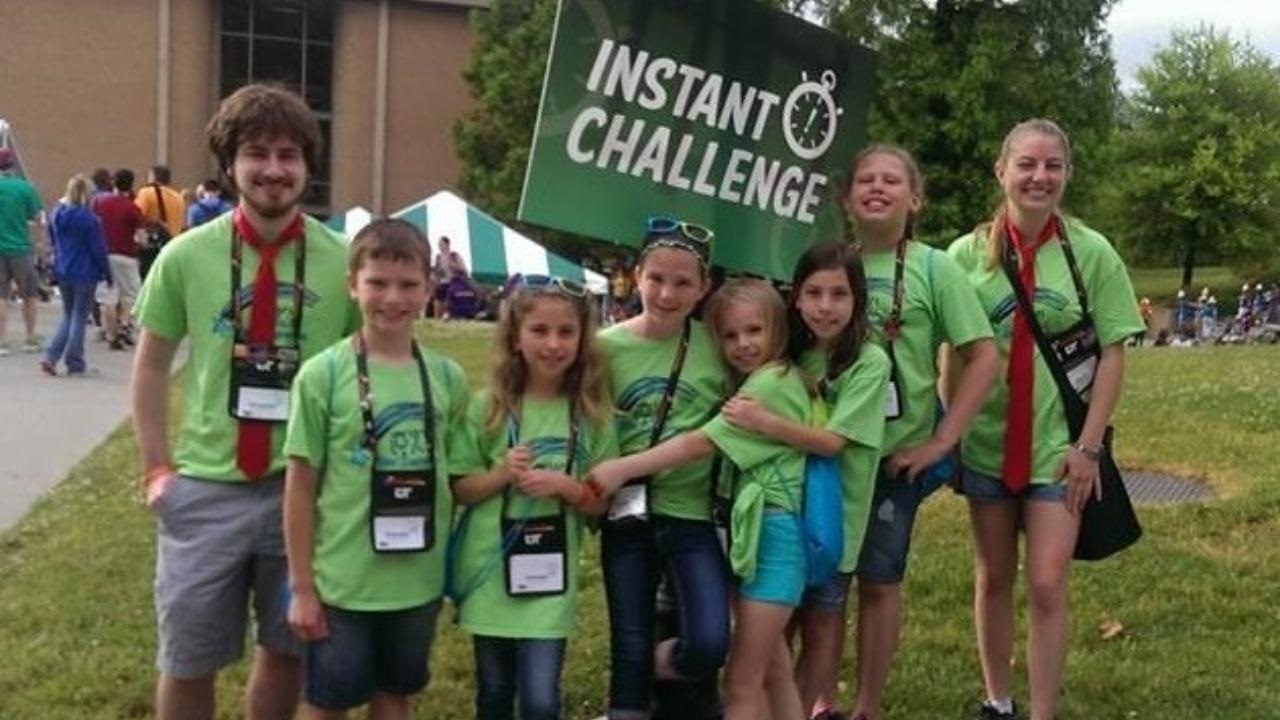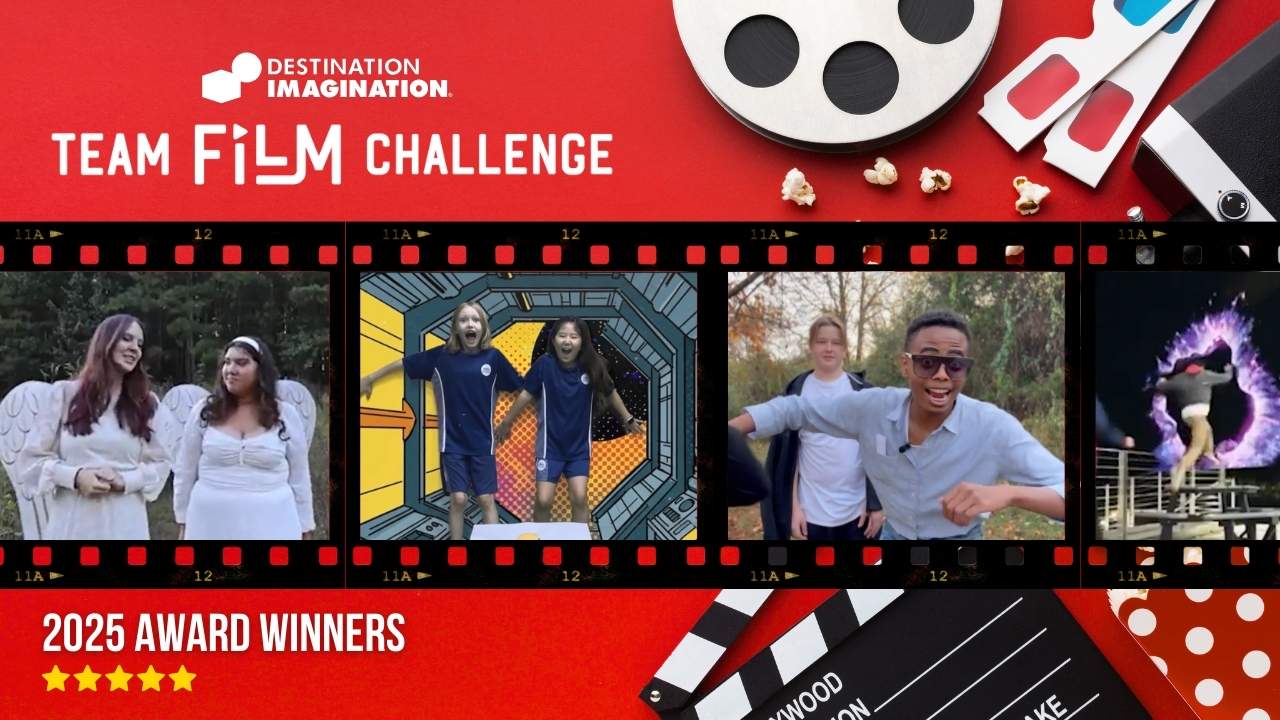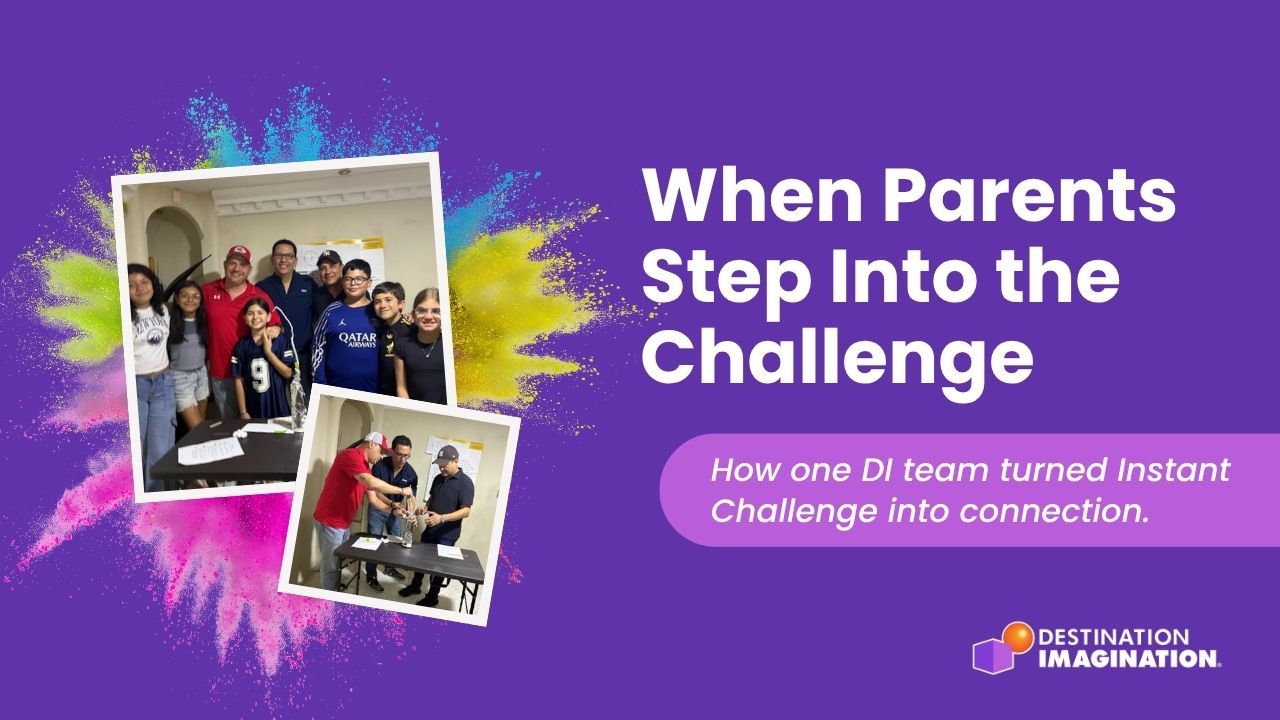By Marie Farley, Team Manager
Every year, every team, in every level, in every Challenge has to compete in Instant Challenge (IC). It is the common denominator of all Destination Imagination (DI) Challenges. The skills IC teaches—leadership, time management, improvisational engineering, critical thinking, teamwork, and so many more—are too important for any team to pass up. If you are a new Team Manager, you need to prepare your team for this mainstay of DI.
When should I start prepping my team for Instant Challenge?
It is never too early to begin prepping your team for IC. If you have an Early Learning team, take the opportunity of the non-competitive environment to teach your kids the IC fundamentals: reading the Challenge, managing their time wisely, understanding the different properties of the given materials, delegating responsibilities, etc. Allow your team to participate in the regional IC day (if you have one), and most importantly, allow them to participate in their Regional Tournament. This will not only give the kids a sense of what a real IC is like, but it will also allow you to understand how your team is likely going to respond to the real deal.
What are the different types of Instant Challenges?
There are three different types of ICs: Performance-Based, Task-Based, and Combination (a hybrid of performance and task). However, there are also sub-types. In general, performance ICs can be broken down into Improv-style Challenges (here is a situation, now make a skit) and non-verbal Challenges (teams have to use a non-verbal communication system to convey information). Task-Based Instant Challenges typically can be broken down into bridges, towers, and transporters (retrieving materials from across a line or delivering materials to a given location). There are a few exceptions to these subtypes (I call them miscellaneous Instant Challenges), but the aforementioned types are far and away the most popular. By organizing ICs into subtypes, you can identify where your team needs more focus; knowing that your kids have succeeded at every bridge Challenge while struggling with every tower Challenge is much more specific and helpful for planning future practices than knowing that they have done “okay” at building Challenges.
Should I practice Instant Challenges that are designated for a level different from the one my team competes in?
Yes. I use the level indicators as another way to judge how well my kids are doing in IC. I expect my elementary-level kids to be able to solve elementary Challenges at the bare minimum. My goal is to have the kids solve middle-level Challenges by the Regional Tournament and secondary-level Challenges by the Affiliate Tournament. They don’t always reach these goals, but knowing where they are level-wise (and where they are level-wise at a given point in the year compared to previous years) gives me another tool to evaluate my team’s IC practice needs. Additionally, when you combine a given Challenge’s level with its subtype, you can see how far along your team is in an IC area. Knowing that the kids are consistently solving non-verbal Challenges at a secondary level, tower Challenges at a middle level, and transporter Challenges at an elementary level will give you more information on which types of Challenges you need to select for practices.
How often should my team practice Instant Challenge?
I usually prepare three ICs per practice. If my team’s Central Challenge is looking really rough, I will only prepare one or two ICs. Even then, however, we always practice IC first so that we know we will have enough time to get through it. Sometimes, we have entire practices completely dedicated to IC. It is that important.
What matters more: solving the Challenge or teamwork and creativity?
Each IC will weigh the importance of solving the Challenge versus teamwork and creativity differently (another reason to teach your kids early on how to read the scoring section of their IC carefully); however, almost every Instant Challenge will have a teamwork and creativity score. As my team learned the hard way last year, no matter how well-designed, successful, and creative their solution, they cannot succeed without teamwork. So, in short, teamwork, creativity, and solving the Challenge all matter for a successful IC.

For practice Instant Challenges, be sure to check out Roadmap and the Instant Challenge Practice Set, located in the Resource Area. You can also find additional ICs in the Free Resource Library, as well as through the STEAM Activities section of our blog.





